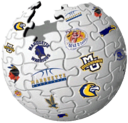To recap, a week ago we covered a guest post from Blackheart about how teams could break down MU's defense by slowing down the pace. In the first half, which ended with Marquette being down 31-24, any idea how effectively USF was able to slow down the pace?
Holy crap! If extrapolated, the first half was played at a pace of 48 possessions. Do you know how slow that is? (tangent, I went to look up the slowest pace in D1 and it's actually Wisconsin. That made me laugh. Because. Big. Ten. basketball. is. so. boring. and. Wisconsin. is. the. worst.) So the slowest-paced team in the nation averages 58 possessions per game, and even their slowest game was 50 possessions. The first half was at an even slower pace than that. cripes.
As predicted by Blackheart, Marquette's defense was terrible at such a slow pace. USF (mind you, a team that averages 1.01 ppp, scored 1.29 ppp in the first half, and had an eFG% of 79%!) Also, as John Pudner highlighted, USF was all over the offensive boards. The only good news for MU was that USF was sloppy with the ball.
Now, obviously Marquette rallied from 16 down to win, but instead of posting the 2H stats, I want to build more on the period during which Marquette was pressing. From Rosiak's blog post after the game, he mentioned that the press started around 14:18 left and MU down by sixteen. We ran the numbers from that point on until Crowder hit the final three of the game (1:36 left) Yet again the press proved to be effective both offensively and defensively. During this almost thirteen minute stretch, MU held USF to 0.55 ppp and 30% eFG%. If the pace for this period is extrapolated to 40 minutes, it results in a tempo of 68 possessions. That's right around average.
Yet again the press proved to be effective both offensively and defensively. During this almost thirteen minute stretch, MU held USF to 0.55 ppp and 30% eFG%. If the pace for this period is extrapolated to 40 minutes, it results in a tempo of 68 possessions. That's right around average.
Also, note that the press was actually less effective than the 1H defense at forcing turnovers. In addition, Marquette still was able to take remarkably good care of the ball, only coughing up a turnover once. In other words, the conventional wisdom about the press, where it causes more turnovers on both sides of the ball, was not accurate. The primary benefit for Marquette was to succeed in playing better defense and increasing the tempo.
Yet again we ask "Should Marquette Press More?". Here's your running tally for two games of featuring the press.
Solid numbers all across the board. Just about the only area that is worse is our opponents' Free Throw Rate. Good thing that's practically insignificant to defense. We also continue to believe that it's not a sustained defense, but definitely a strong counter (think first half, Buzz) to an opponent attempting to slow down the pace. To the question of if Marquette should press more... yet again the answer comes back "Yes".
Thursday, February 10, 2011
South Florida - Pace and the Press
Written by
Rob Lowe
at
8:07 PM
![]()
Labels: dr blackheart, full court press, Game Recaps, pomeroy, tempo-free stats
Subscribe to:
Post Comments (Atom)

1 comment:
Unbelievable recap and statistical analysis Rob. Great work. This is exactly why I keep coming back to Cracked Sidewalks. Thank you.
Post a Comment